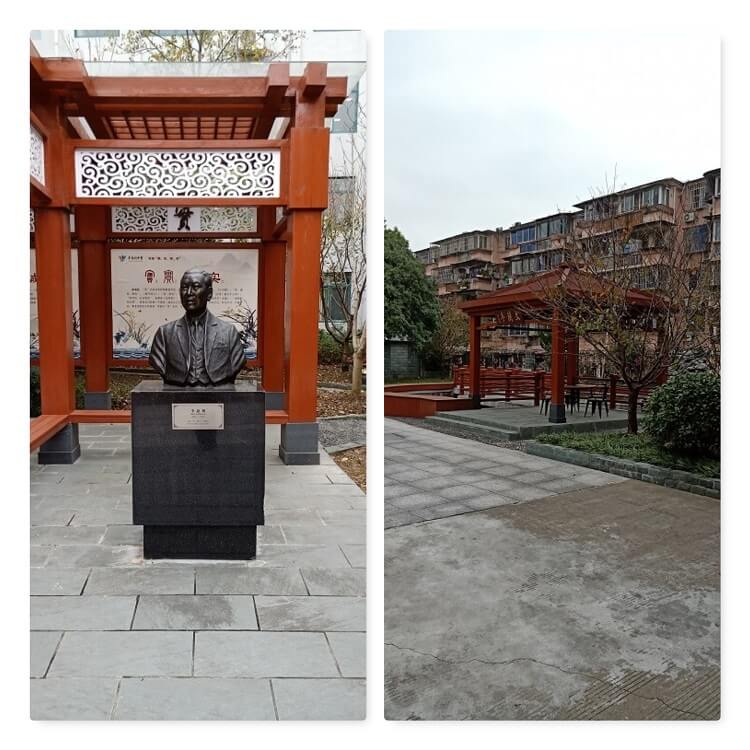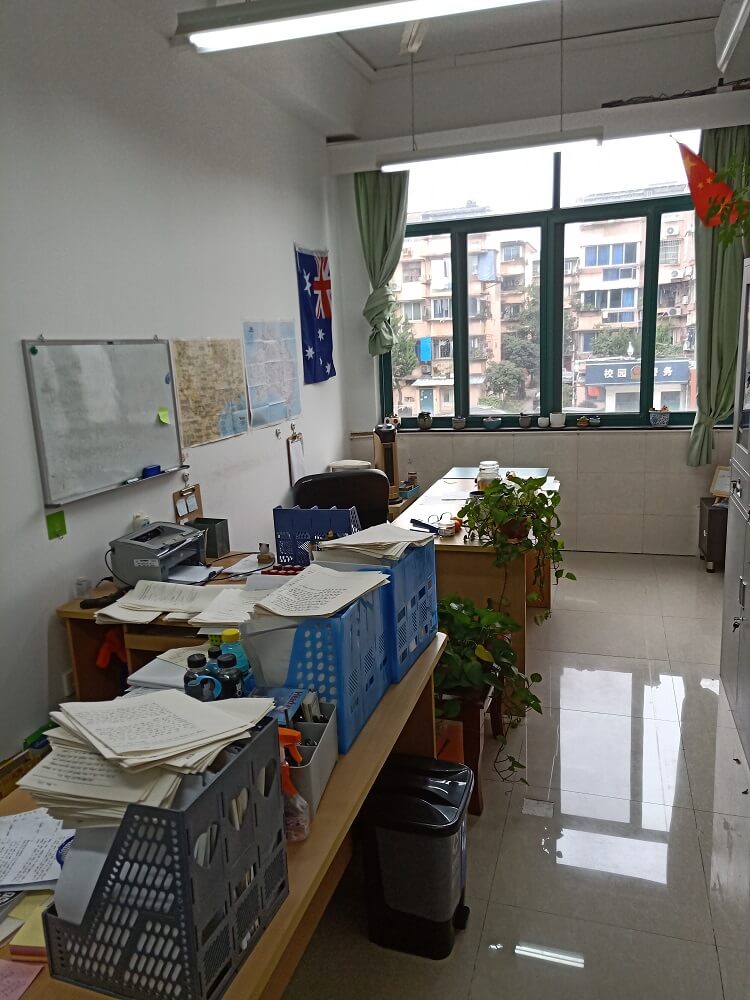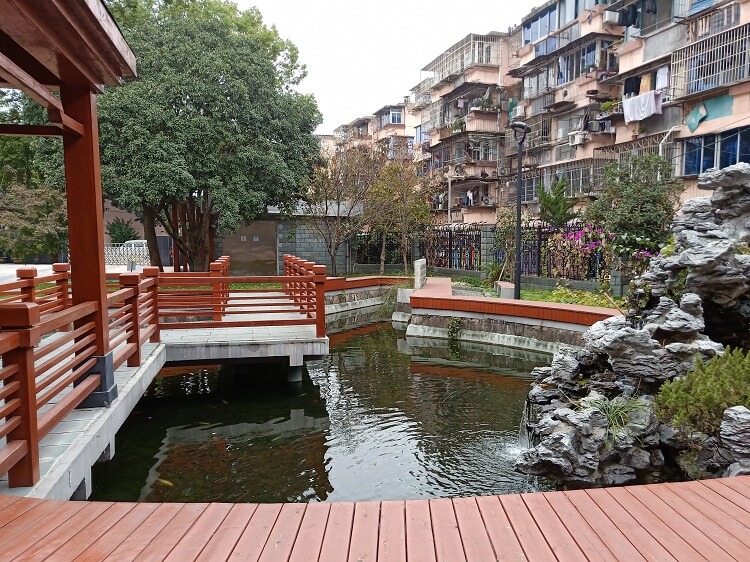In my one and a half years of being in China, teaching in an international school program has proven to be the most fruitful professional experience I’ve had so far.
That said, it isn’t always a cakewalk, and I’ll touch on that below, but it can be truly rewarding.
There are major international school programs in China with ties to America, England and the land down under.
If you find yourself teaching in China under an Australian program, like me, you will undoubtedly be respected for your knowledge of the curriculum.
Teaching VCE at my school in China
I’m part of a VCE program (for all y’all out-o-towners, this is the senior Victorian curriculum; Victorian Certificate of Education), and I’m probably one of the few Australians involved.
The goal is to make it easier for mainland Chinese students to get into an Australian university, the goal being they will attend one of the group of eight, leading universities.
Before arriving at my school in China, a full-time Australian teacher had never even stepped foot through the front door.
According to the heads of the program, I’m also the only teacher right now with any VCE experience.
With that in mind, I’m often called upon to give advice on course requirements, learning intentions and assessment tasks.
The pleasing positives of international school programs in China
Unlike the significantly mixed cohort you’re bound to find awaiting you in language training centres and government schools in China, over half of the students you encounter in an international school program will be passionate, headstrong and dedicated.
A number of these students have given it their all to enter such a program, and are there purely by choice, because they want to study overseas.
Their reading, listening and writing skills will be significantly higher than the average student.

Above: International school campus, China.
If you are a mercenary fellow (like yours truly), you will be pleased to know that most international school programs in China pay more than those associated with the mainland.
On top of this, you’re usually provided accommodation, free of charge, and even free food served at the campus cafeteria on weekdays (you can see the kinds of benefits of teaching in China here).
Sister school arrangements
Your program will also be the sister school of a respected organisation in another country.
In my case, that school is Haileybury (consider this my shameless plug – my boss will break my legs if I don’t say them by name).
Due to this, a curriculum will already be in place, with set texts, assignments and worksheets.
This ensures you won’t always have to reinvent the wheel, though there will be instances when you are inevitably required to.
Adjustments in the first few months
A number of Chinese schools have a tendency to want to change set texts and assessments, thinking that they are either too challenging or too simplistic.
This can occasionally leave you feeling like the meat in the sandwich, with too many cooks in the kitchen having their own specifications.
When I first arrived at my school, the last teacher, an American, had taken the entire VCE curriculum and ejected it out the airlock.
He replaced all of the texts with ancient American ‘classics’ that I would sooner use to make a camp fire with than force upon a group of starry eyed youth.
Safe to say, my first couple of months was an exercise in adjusting to the changes that had been forced upon the program.
I remember receiving one particular instruction from Haileybury, and was required to change this in accordance with my school’s unique interpretation of it.
Big workloads are common
Those of you who have only worked in language training centres might be shocked to discover the extensive workload you must sometimes manage.
The classes are usually short, ranging from 40-45 minutes a day, with sometimes only a minimum of two classes, though you can sometimes find yourself teaching up to six.
This is the easy part. The significant portion of work that requires grading, however, is far more of a challenge.

Foreign teachers' office at international school in Ningbo.
Students often use the metaphor ‘I have a mountain of homework’ when we study persuasive techniques.
This sentence will not be lost upon you, who will sometimes have a mountain of student work that requires correcting and grading.
Overseas programs, like the VCE, are often in the crosshairs of the representative bodies (in this case, the VCAA), who demand stringent marking practices from fear of corruption tarnishing the reputability of student marks.
With this in mind, you’ll sometimes have managers breathing down your neck, demanding results.
Money is the most popular language
Unless you’ve been living under a rock, I’m sure you’re aware of the loot box scandal permeating video games, where players can ‘pay to win’.
Where some players can progress naturally, others can pay money to receive the strongest characters, abilities and accomplishments straight out of the gate.
This is relevant, because families that originate from greener pastures can smuggle their offspring into programs society deems better than most.
Students are not necessarily elite
Due to this, as much as schools might represent their international program as ‘elitist’, the truth is usually less terrific.
In my experience, teaching at two Australian programs in two different schools (one in Wuhan, the other in Ningbo), a minimum of 30% of the student body were not even close to ‘elite’.
Wealthy, yes indeed, but some were a sandwich short of a picnic, a majority of these few students having failed middle school, with some even having failed primary.

Above: Students at an international school in China.
In response, regular Chinese institutions refused to accept them.
It was clearer than spring water that such students would not perform well on the dreaded Gaokao, and because of this, their results would, in the eyes of administrators, tarnish a school’s reputation.
With no Chinese school willing to accept these students, the only option was an international program, where money inevitably speaks.
In China, connections matter
Even if a school has prerequisites (at my school, students need to pass a test and an interview), students can bypass this if mummy and daddy have the income – or the connections.
Look at any international school program in China; most of the students come from upper-class families, who stare down the noses of, well, everyone else, with the cost of these students’ education dwarfing what other schools would demand.
Once their foot is in the door, a student is usually safe from reprisal.
When teaching in Wuhan, at a school, I might add, that was hailed as one of the best in the region, 18 of the 32 students in their final year of school had completed next to none of the work required.
Their parents had emboldened them with the belief that no matter what happened, their money would bail them out of any situation.
Changing students’ marks
At some schools, you will be asked to change students’ marks (sometimes the managers won’t even ask – they’ll just do it without your knowledge).
This guarantees that none of the fat cats fail.
This contradicts what I said earlier, about massive representative bodies fearing corruption. If this ain’t corruption, then I am Mickey Mouse!
The way I see it, any decision to alter marks will inevitably come back to bite these kids in the butt.
I’ve heard two stories of Chinese students from international programs being kicked out of Melbourne University in the last few months alone because of unsatisfactory performance.
As the idiom goes - crime doesn’t pay.
Is there a future for international programs in China?
Demand in international programs is decreasing.
At my school, the numbers don’t just speak for themselves, they scream!
In 2018, over 200 students applied to be part of the VCE program. In 2019, just over 100 applicants interviewed.
That is a 50% drop in as little as one year.
‘Why is this happening, you magnificent ocker?’ I hear you ask.
I can pin-point three possible reasons.
Three reasons for the decrease
First, obtaining a degree from an elite Chinese university is now the equivalent of going to a college overseas, in the eyes of local employers.
The benefit that was once attached to getting an international education has started to diminish.
Second, China is becoming more nationalistic.
The Communist Party’s continued message that foreign countries are unfriendly has been ratcheted up, what with the trade war and the Hong Kong riots.
Many mainlanders are eating this up, hook, line and sinker. They feel that China is a safer, better place for their children to be educated.
Lastly, the cost of living in China has unfathomably exploded in recent years, especially in the Tier One cities.
International students in Australia need to sometimes pay, at least, 30% more than local students.
My mother keeps telling me ‘there are more millionaires in China’, but even they are feeling the bite; keeping their little darlings nearby will guarantee they save money.
According to my managers, there were (depending on who you ask) approximately 15 schools in China that were undertaking the equivalent of a VCE qualification in the senior year when it was launched.
Now, there are around nine.
My colleague and I joked a couple of months back that if this continues, we will find ourselves out of a job.
There will always be a need for international programs
China will always be as reliant on foreign trade as international countries are reliant on the Chinese market.
At the same time, all of these programs are co-funded by the Chinese government.
Depending on the program, between 70% - 80% of students need to receive successful grades for a program to be deemed ‘efficient’.
If not, the government can, and will, shut it down.
But don’t let that scare you. There will always be an opening for programs like these, no matter what happens.
So, what are you waiting for?
Teaching in an international school program in China has been the best professional experience I’ve ever had.
But don’t just take my word for it – go and see for yourself.
Do you have any questions or comments about teaching in international school programs in China? Please comment below.





